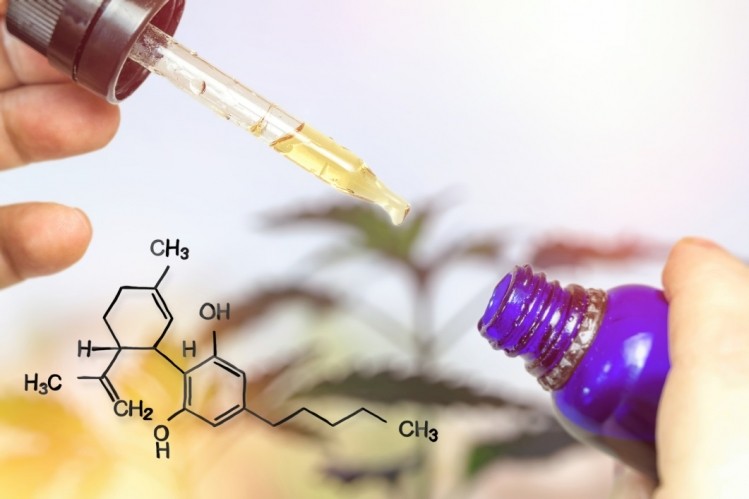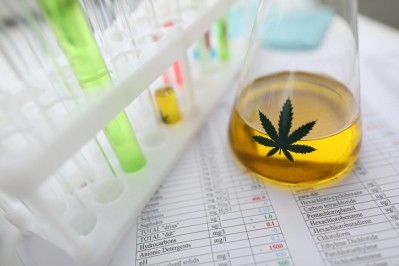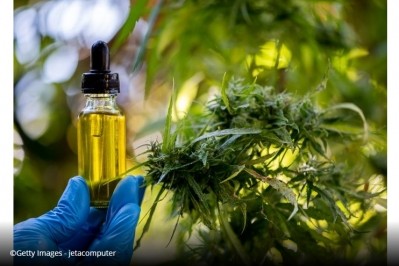CBD industry consortium kicks off ‘landmark’ safety study: ‘The UK will be in a position to take the global lead on CBD in food’

Interest in cannabidiol (CDB) has surged over the past five years, with UK sales now totalling over £300m, according to data from the Association for the Cannabinoid Industry (ACI).
However, this growth comes against the backdrop of an emerging – and somewhat confusing – regulatory regime.
The European Union initially classified CBD as a Novel Food – meaning that it requires pre-market authorisation including a safety assessment presided over by the European Food Safety Authority (EFSA).
The UK’s Food Standards Agency (FSA) confirmed that CBD manufacturers will have to submit a Novel Food application to be legally sold in the UK market after Brexit. The FSA has set a deadline for submissions of 31 March 2021.
To complicate things further, the EC decided in June to postpone the progress of Novel Food applications concerning CBD products as it decides whether to class non-synthetic CBD as a narcotic – much to the chagrin of European CBD and hemp companies.
Today, the ACI says, some ‘fundamental questions’ over the safety of CBD for human consumption remain. Over the past year the UK Government Committee on Toxicity (COT) has undertaken an ongoing review of CBD safety which has highlighted the need for new toxicology data.
To answer this need, the ACI, in partnership with Advanced Development and Safety Laboratory (ADSL), announced the launch of what it described as ‘a landmark study’ with a consortium of CBD companies. Together, these organisations said they are committed to building a ‘sustainable, safe and fully compliant’ CBD industry in the UK.
Scope of the safety study
The new study will address existing gaps in data identified by COT. These include whether CBD causes potential drowsiness, liver toxicity or has any interaction with other drug substances.
Filling in these blanks will be vital to submitting a successful application under the Novel Foods regime, Dr Parveen Bhatarah, Head of Regulation and Compliance at the ACI, told FoodNavigator.
“The COT has highlighted that there are gaps in the available toxicological data from the existing studies and further studies are required to ensure consumer safety. The FSA hopes this scientific evidence will be met through the Novel Foods process. This is therefore a core requirement of the success of any Novel Foods dossier to be validated by the 31st of March,” Dr Bhatarah explained.
Yesterday, the FSA published business guidance on CBD as a novel food. In it, the regulator advised applicants to consult the EFSA’s guidance on ‘the usual application process for all novel foods’ – a process which includes a 90-day rodent safety study – and confirmed the requirement of toxicological data.
“An important part of any application will be a consideration of the product’s safety. Applicants will need to include details of the toxicological studies they have undertaken, or propose to undertake with clear details of the reasoning for these particular tests,” noted the regulator, stressing that without such information, “it is unlikely we will be able to validate an application”.
The ACI-led study will, indeed, include a rodent study according to OECD 408 parameters, as per EFSA’s guidance.
“We intend to do animal studies and need to understand the outcome of this study to decide what further studies are required,” Dr Bhatarah elaborated. “The methodology we are using is a 90 day rodent study (OECD 408) which will include a dose range finding study as well as ADME (Absorption distribution, metabolism excretion) studies to understand bioavailability. We will also do genotoxicity studies.”
Mark Bowes-Cavanagh, Managing Director, ADSL added: “ADSL will be supporting the ACI with all its technical services, including regulatory compliance, analytical studies, cannabinoid stability and collation of the risk dossier to meet the FSA guidelines on the Novel Food Application.”
Collaborating for safe and sustainable CBD development
The ACI is bringing together a consortium of companies to fund and generate data that is useable ‘by all participating members’. The group includes pioneers in the CBD space, such as NatureCan and GenCanna Acquisition Corp.
Given that the data will be generated using animal testing, ACI said this approach is ‘ethically aligned’ with ‘minimising animal usage’.
“The ACI shares the FSA objective of ensuring consumer safety of CBD products. The generation of toxicological data according to EFSA guidance, and sharing that data by consortia approach, is an ethical and financially diligent way to meet these FSA requirements,” Dr Paul Duffy, Toxicology Adviser to the ACI elaborated.
As it works to expand in the UK and EU, GenCanna stressed the need to meet regional regulatory requirements and said that this collaboration is a step in that direction.
“This collaboration of qualified cannabinoid manufacturers will provide a uniform and unparalleled demonstration of the safety, efficacy, and quality requirements that GenCanna and its partners believe are important for food products that contain cannabidiol ingredients,” VP of Quality Assurance Chelsea Pipkin said.
Short-term necessity, long-term competitive advantage
The ACI suggested that by bringing together this group of companies, the organisation is ‘leading the way not just for the industry in the UK but across the world’.
Looking at the global regulatory landscape, the ACI said ‘no other country’ has provided the ‘clear regulatory framework’ for compliance that exists in the UK.
The safety information generated in this study will therefore respond to future demands of regulatory authorities in the US and EU and provide participants with a competitive advantage, we were told.
“In the short-term it is a necessary requirement that CBD companies generate this data to be Novel Food complaint by 31 March 2021 [in order] to continue selling their products legally in the UK,” Dr Bhatarah said.
“This project is also key for long-term consumer safety and key for the sustainability of the UK industry. The UK will be in a position to take the global lead by providing the answers to global regulators and giving confidence to consumers on the long-term safety of CBD in food.”































